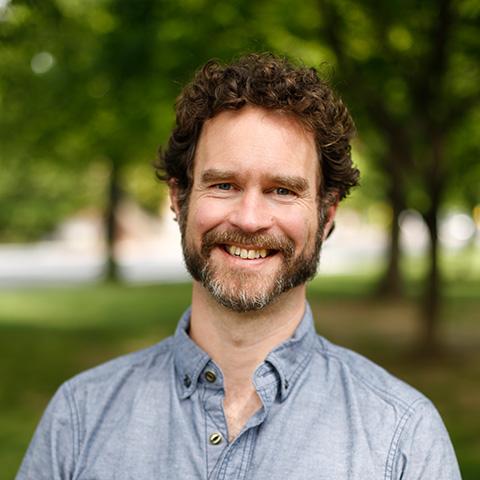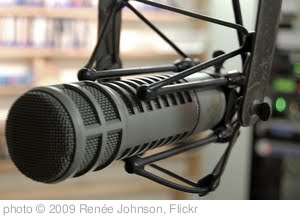
Timothy McMahan Kingis a writer, senior fellow for clergy for a New Drug Policy, and the owner of Vagabond Strategies. He is the former chief strategy officer for Sojourners and has served as a consultant for national nonprofits, advocacy campaigns, and political candidates. The author of Addiction Nation: What the Opioid Crisis Reveals About Us (Herald Press, 2019), he is an active advocate for those in recovery and to reform United States drug policy. His second book, What Are Drugs For? is forthcoming with Fortress Press. He has written widely for national publications, including The Wall Street Journal and CNN.
He's spoken and lectured across the country from Georgetown University to the Chautauqua Institution. His writing is required reading in classrooms and graduate programs across the country for his unique perspective at the intersection of faith, science, drugs, and addiction while calling for an end to a culture of punishment.
A graduate of North Park University with degrees in theology and philosophy, McMahan King has a deep interest in what healing looks like for the individual and our culture. Growing up on a farm in New Hampshire, he has a keen awareness of the ways in which our communities and the natural environment can call us into greater wholeness.
McMahan King lives with his wife, Hannah; their daughter, Ruth; and their dog, Hank, in North Carolina.
Posts By This Author
A Response to the American Enterprise Institute's Ad in Politico
Today, "Values and Capitalism," a project of the American Enterprise Institute, sponsored a full-page ad in Politico (see page 13) in response to the Circle of Protection. While it is encouraging to see another full-page ad urging our nation's legislators to be concerned about the poor, it is unfortunate that the critique of the Circle of Protection and Sojourners work is based on an error.
So, What's in The Deal?
Late last night it was announced that the president and congressional leadership reached a deal that should ensure that our country does not default on its debts. Now Congress is in the midst of making their decision on the plan. Already the media is trying to hash out who won and who lost, who is up and who is down, and what kind of effect the events of July 2011 will have on how the country votes in November 2012.
Family Research Council Attacks Evangelical and Catholic Leaders
In response to Sojourners' radio ads about the budget debates, the Family Research Council's political action committee has launched radio ads in Kentucky and Ohio arguing that deficit reduction should cut programs that serve poor and vulnerable people. The ads assert that it is the private individual, not government, who has a responsibility to the poor. The ads say, "Jesus didn't instruct the government of his day to take the rich young ruler's property and redistribute it to the poor. He asked the ruler to sell his possessions and help the poor. Charity is an individual choice, not a government mandate."
This could put the speaker of the House, a Catholic, in a difficult position. Catholic social teaching instructs that the government does have a direct responsibility to the poor and that private charity is only one of the ways that Christians express concern for "the least of these." This ad sets itself in direct opposition to that teaching and the values that it comes from. The speaker was already in a tough spot when the Catholic bishops came out with a strong critique of the House plan, but now he has a powerful political organization calling for him to ignore Catholic social teaching all together.
'God is Watching' the Budget Debate in Congress
"God is Watching," reads the headline for a full page ad Sojourners ran in this morning's Politico. It is the latest in a series of radio, print, and online ads we have put out on the budget debate and default crisis. On Tuesday, we launched radio ads in Kentucky, Nevada, and Ohio that were recorded by local pastors who lifted up the moral issues at stake in the debate.
Furthermore, our work in the past few weeks and the Circle of Protection meeting with the president has been covered by the Washington Post (and here), CNN (and here), MSNBC, Politico, Roll Call, and many local outlets from across the country. Behind all the ads and the press is the muscle -- and that muscle is you.
A Gospel Takeover
One.Life: Jesus Calls, We Follow, by Scot McKnight. Zondervan.
Sojourners Launches Radio and Facebook Ads Calling Politicians to Remember the Poor
 If you live in Kentucky, Nevada, or Ohio and listen to Christian or country radio, you'll be hearing some of Sojourners' new radio ads calling for legislators to remember the least of these during this default crisis. For those of you who haven't completed your migration over to Google+, you might also start to see some ads popping up on your Facebook page in the next few days asking you to speak out on behalf of those in need. The reason we are running these ads is simple: The rich have lobbyists while those in need don't, and that's why Christians need to speak out and form a "Circle of Protection." If you don't live in one of these areas (or aren't listening to Christian or country radio) you can listen to the ads here.
If you live in Kentucky, Nevada, or Ohio and listen to Christian or country radio, you'll be hearing some of Sojourners' new radio ads calling for legislators to remember the least of these during this default crisis. For those of you who haven't completed your migration over to Google+, you might also start to see some ads popping up on your Facebook page in the next few days asking you to speak out on behalf of those in need. The reason we are running these ads is simple: The rich have lobbyists while those in need don't, and that's why Christians need to speak out and form a "Circle of Protection." If you don't live in one of these areas (or aren't listening to Christian or country radio) you can listen to the ads here.
Listen to Your Pastors: 4,000 of Them Want a Moral Budget
As the federal debt ceiling standoff threatens to cause an economic catastrophe for our nation, more than 4,000 pastors across the country are opposing proposed immoral budget cuts that harm the most vulnerable people in their congregations and communities. An open letter to Congress and the president ran today as a full page ad in Politico. (You can view the ad and full list of signers here.) We were amazed by the huge response this letter generated. We hoped to find 1,000 pastors willing to speak out with us, and in just 2 weeks more than 4,000 clergy joined our campaign.
Love Comes First
When the Wicked Perish
Sojourners Supporters and Partners Challenge Congress on Budget Cuts
Thanks to Sojourners supporters and our partners, there is a full page ad in Politico today asking Congress, "What Would Jesus
Obama's Global Challenge: Healthy Competition or Unhealthy Nationalism?
Why I Will Feast This Thanksgiving
I am ready to give thanks. Last year, I joined my family for Thanksgiving but when the food was served, I could only watch. Early in November of 2009, I had an attack of pancreatitis. Later, I learned it was probably due to a gallstone, but at the time it was a mystery. My diet throughout November was mostly liquids, then I progressed to soft bland food in December. But due to complications from a medical procedure, things got worse. From mid-December 2009 to the end of June 2010, I received most of my nutrition through a bag. It was pumped directly into my blood stream from 12 to 24 hours every day.